


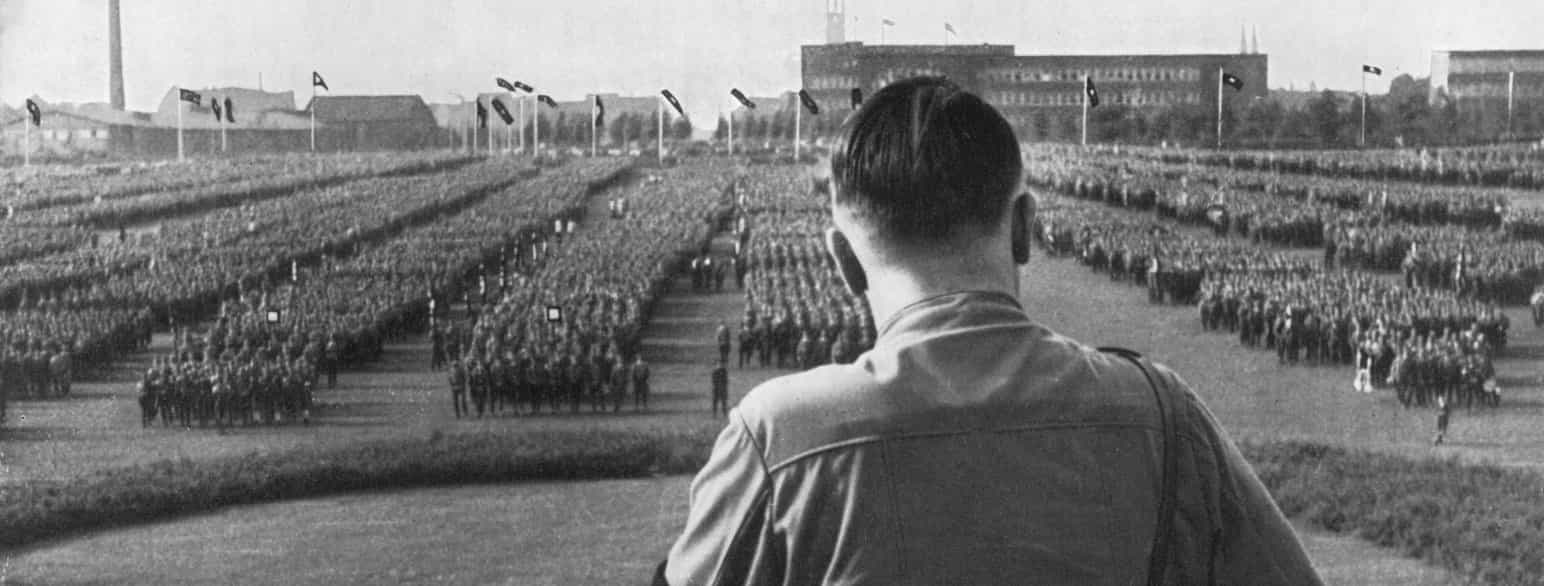
Source: Store norske leksikon
There was no single cause for World War II, but instead a number of factors that led to the outbreak of military action and war across the globe. Read through the resources below to learn more about these factors.
The death and destruction of World War I was so horrible that it was called “the war to end all wars.” Yet, the agreement to end World War I did not resolve the problems of the world and, according to some historians, lead directly to the next catastrophe: World War II. The major causes of World War II were numerous. They include the impact of the Treaty of Versailles following WWI, the worldwide economic depression, failure of appeasement, the rise of militarism in Germany and Japan, and the failure of the League of Nations. Read this fact sheet to learn more.
There are many different cause for World War II. To Japanese militarism to political takeover from Hitler, here are some of the reasons for World War II.
There were many events throughout the world that led to the beginning of World War 2. In many ways, World War 2 was a direct result of the turmoil left behind by World War 1. Read through this website to learn about some of the main causes of World War 2.
The causes of World War Two might seem simple, however, should you dig a little deeper into world politics at the time, you will notice a melting pot of unrest, economic strife and increasing desire for power all around the world. Read through this website to learn more.
World War II occurred just two decades after the end of World War I and was one of the most important events in all of world history. Although the war broke out in September of 1939 when Nazi Germany invaded Poland, the war had its beginnings in several key events, such as: the Treaty of Versailles, the failure of the League of Nations, the failed policy of appeasement and the rise to power of Adolf Hitler. Read through this website to learn more.
Pinpointing the causes of a vast, global event like the Second World War is a challenging task for the historian. Events—especially enormous, multifaceted events—have multiple causes and multiple inputs. Read through this website to learn more.
Many of the seeds of World War II in Europe were sown by the Treaty of Versailles that ended World War I. Read through this website to learn more.
Looking around at the magnitude of death and destruction that resulted from the World War I, leaders of the some of the world’s major powers convened a conference in Paris, the outcome of which they hoped would ensure that no such devastation would ever happen again. Unfortunately, the combination of a poorly designed peace treaty and the most severe economic crisis the modern world had ever experienced brought about a deterioration of international relations that would culminate in a war even more calamitous than the one that preceded it. Read through this article to learn more.
This article looks at not only what the Treaty of Versailles is, but also how it impacted foreign relations and influenced tensions that eventually led to Word War II.
This website has a great in-depth analysis of the Treaty of Versailles and reactions to it across the world (with a particular focus on the U.S. response), and includes a key summary points section for quick reference. It also includes photos and political cartoons of the era.
Instituted in the hope of avoiding war, appeasement was the name given to Britain’s policy in the 1930s of allowing Hitler to expand German territory unchecked. Most closely associated with British Prime Minister Neville Chamberlain, it is now widely discredited as a policy of weakness. Yet at the time, it was a popular and seemingly pragmatic policy. Read through this website to learn more.
When Hitler came to power, British prime minister Neville Chamberlain did all he could to appease him. But had he listened to another voice; that of Conservative backbencher Winston Churchill, might history have taken a very different course? Read through this article to learn more.
The Second World War was the most destructive conflict in human history. Years of international tension and aggressive expansion by Fascist Italy and Nazi Germany culminated in the German invasion of Poland on 1 September 1939. Britain and France declared war on Germany two days later. Read through this website to see some of the reasons why Europe went to war.
After taking over Austria, Hitler turned his attention to Czechoslovakia—a country created in 1919 by the Treaty of Versailles that was home to 3 million people of German descent as well as many of other nationalities. Most of the German-speaking Czechs lived in a western part of the country called the Sudetenland, which bordered Germany. In 1938, with help from the Nazis, many Germans in the Sudetenland agitated for “a return to the Reich.” By summer, Hitler was openly supporting their demands. By September, when the annual Nazi Party rally in Nuremberg was held, Germany was preparing its military for another invasion. Read through this website to learn more.
Overturning the conditions of the Treaty of Versailles and, following this, a war of expansion, were the major priorities in Hitler’s foreign policy. As the plan for war contained in the Hossbach Memorandum from 1937 indicates, the question was not if a war would happen, but when. This website explores the Nazis’ aggressive foreign policy and the causes of the Second World War.
When Hitler invaded Poland, he was confident that Britain and France would continue their policy of appeasement and broker a peace deal. Bradley Lightbody considers his gross miscalculation and how it led Europe to stumble into war.


Nationalism is often cited as one of the causes of World War 2. Read through the speech in this link to see Hitler's nationalistic agenda. In this speech, Adolf Hitler explains his political agenda to the Reichstag from March 1933, given a few weeks after his appointment as chancellor.

Former army commander General Paul von Ludendorff issued this statement in 1922, calling on the German people to prepare for another war. This militarism is often cited as one of the causes for World War II.

Adolf Hitler made his first address as chancellor in February 1933. In this extract, Hitler condemns the previous government and outlines the focus of his new regime. Read through this speech to find mention of the economic conditions in Germany caused by the Great Depression and the harsh terms of the Treaty of Versailles, the nationalism and the militarism.

The Enabling Act, passed by the Reichstag in March 1933. It shows how Hitler claimed total power and the groundwork was laid for Germany to go to war.
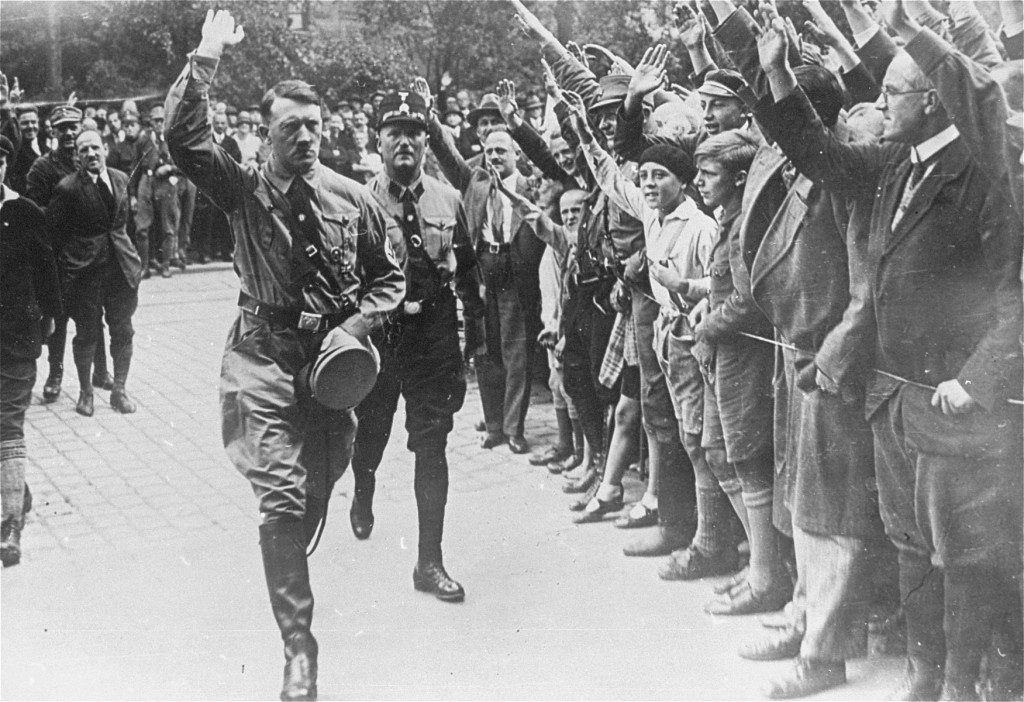
A party summary of a meeting attended by NSDAP Gauleiters in February 1934, where Hitler spoke and addressed the need for party unity. This excerpt explicitly makes the link between patriotism and the outbreak of war.

This confidential memo, written by Adolf Hitler about Germany’s economic policy, was written in August 1936. It looks at the economic and expansionist causes behind the war.
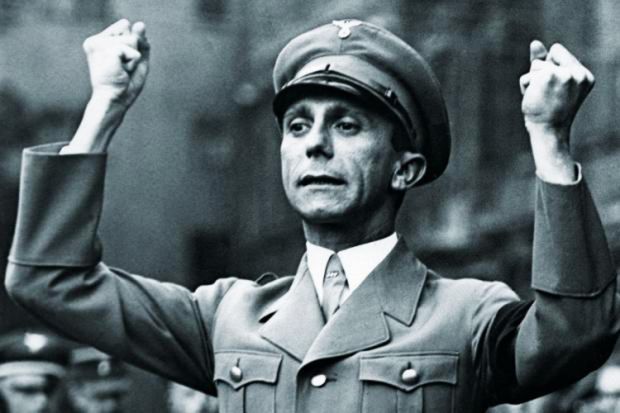
In this extract from a 1927 editorial, Nazi propaganda chief Joseph Goebbels attacks the Weimar government and the Versailles treaty.
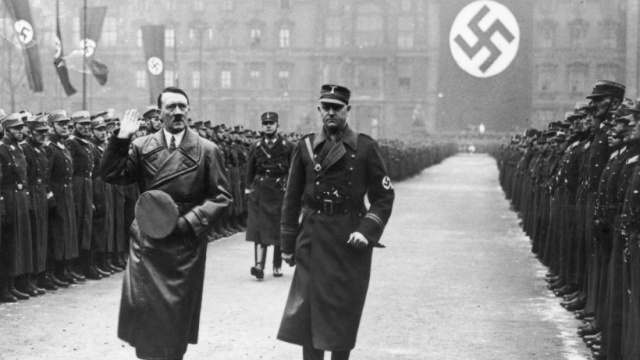
Adolf Hitler on foreign policy, from a speech to military commanders in February 1939. In this speech he talks about the failure of the League of Nations, rearmament, militarism and nationalism.

This section of the website details the full contents of the Peace Treaty of Versailles, signed on 28 June 1919 by Germany and the Allied powers at the Palace of Versailles. A sizeable document, the treaty featured some 440 Articles, with the addition of numerous Annexes.

These images give an idea of how mistreated the Germans felt in the wake of the Treaty of Versailles.
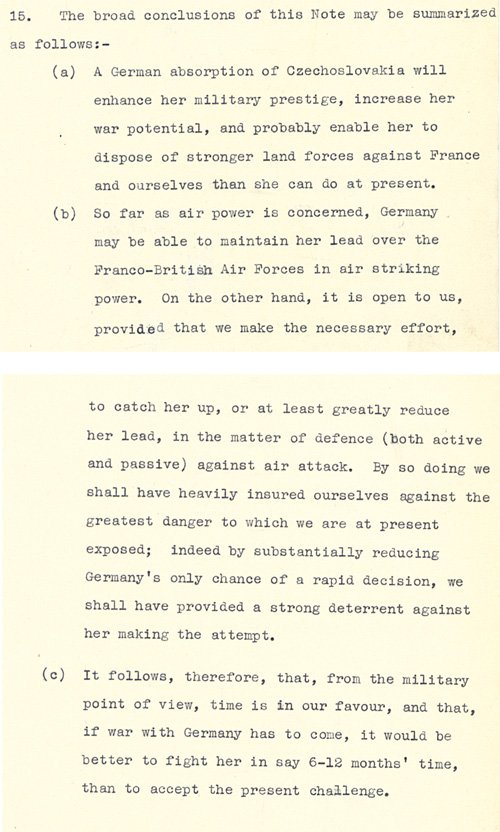
Transcript
15. The broad conclusions of this Note may be summarized as follows :-
(a) A German absorption of Czechoslovakia will enhance her military prestige, increase her war potential and probably enable her to dispose of stronger land forces against France and ourselves than she can do at present.
(b) So far as air power is concerned, Germany may be able to maintain her lead over the Franco-British Air Forces in air striking power. On the other hand, it is open to us, provided that we make the necessary effort, to catch her up, or at least greatly reduce her lead, in the matter of defence (both active and passive) against air attack. By so doing we shall have heavily insured ourselves against the greatest danger to which we are present exposed: indeed by substantially reducing Germany’s only chance of a rapid decision, we shall have provided a strong deterrent against her making the attempt.
(c) It follows, therefore, that, from the military point of view, time is in our favour, and that, if war with Germany has to come, it would be better to fight her in say 6-12 months’ time, than to accept the present challenge.


 A short history of World War II by
A short history of World War II by